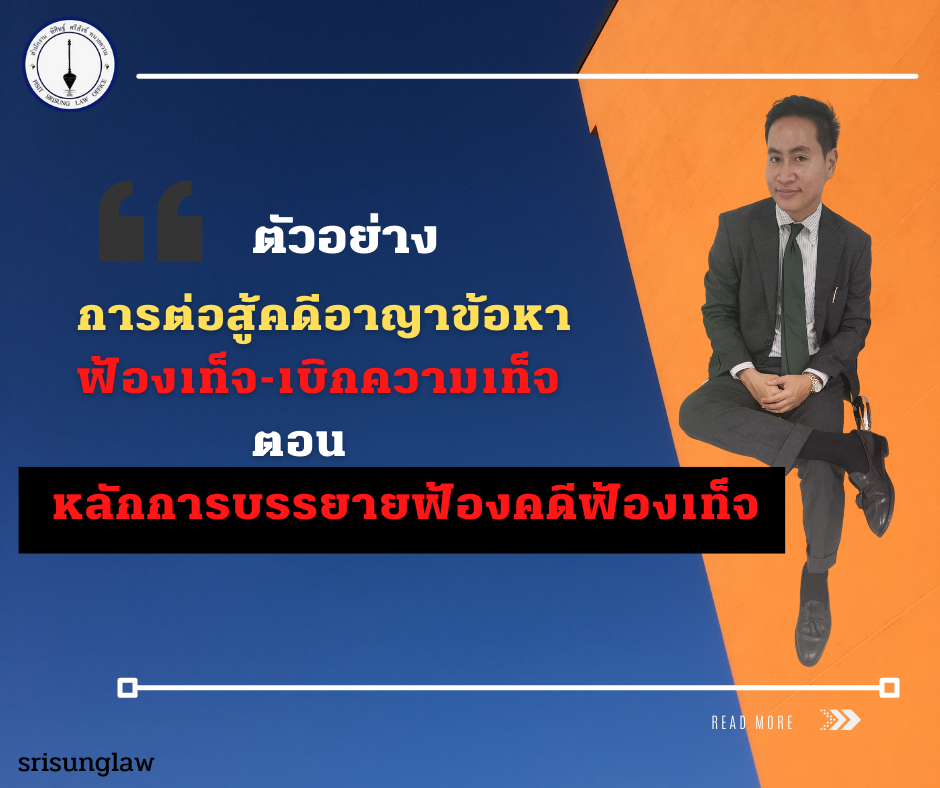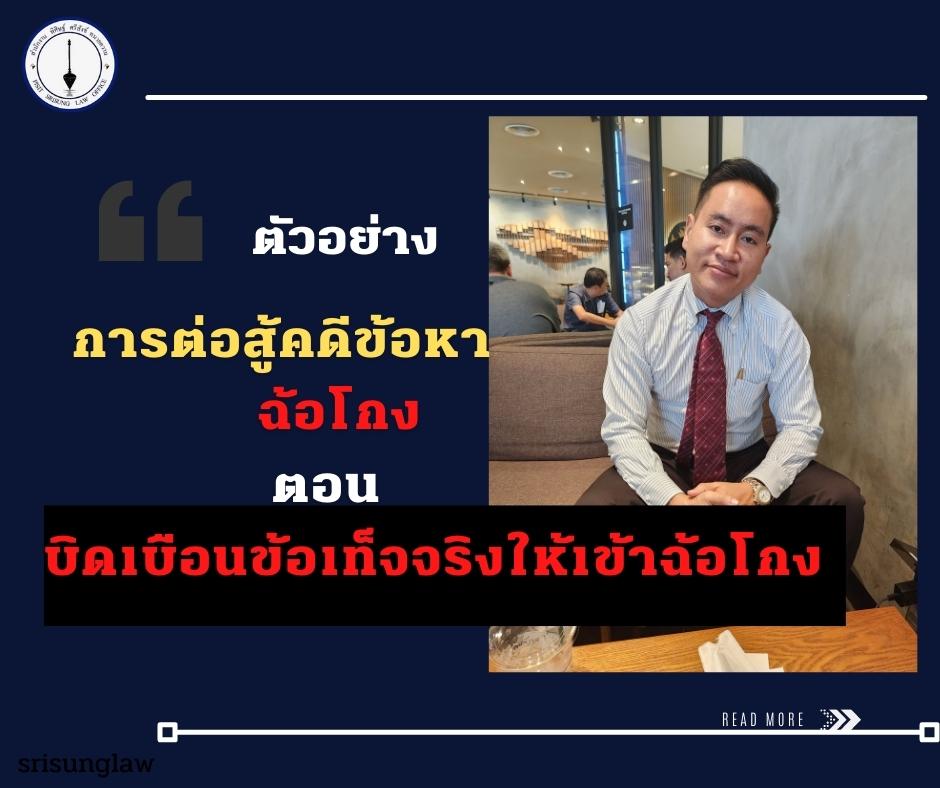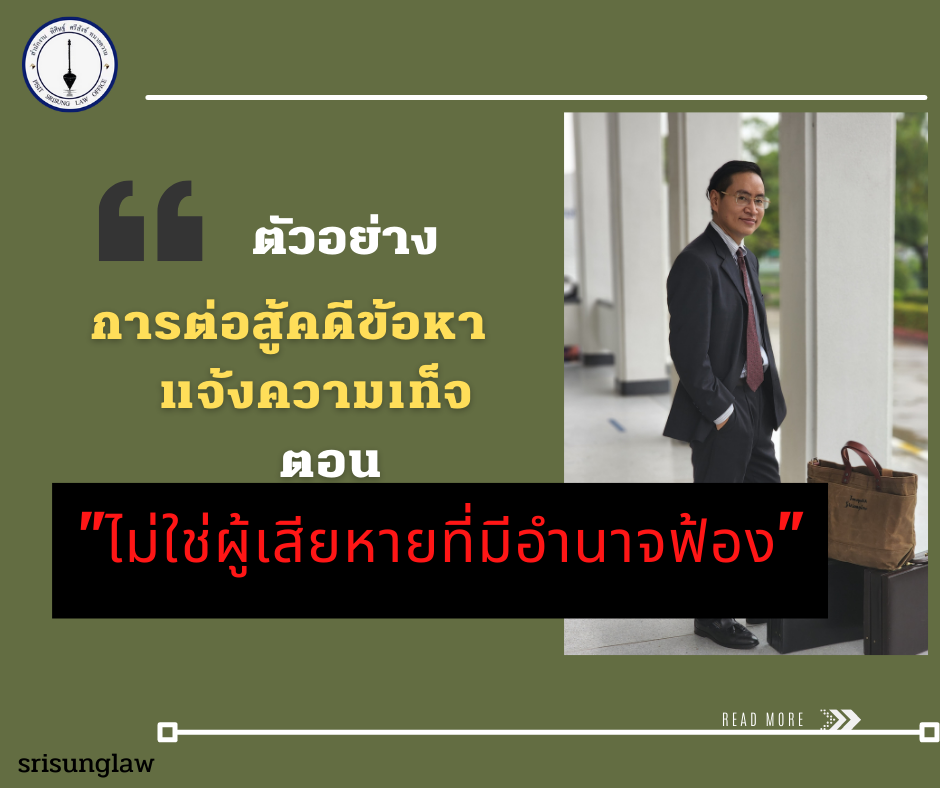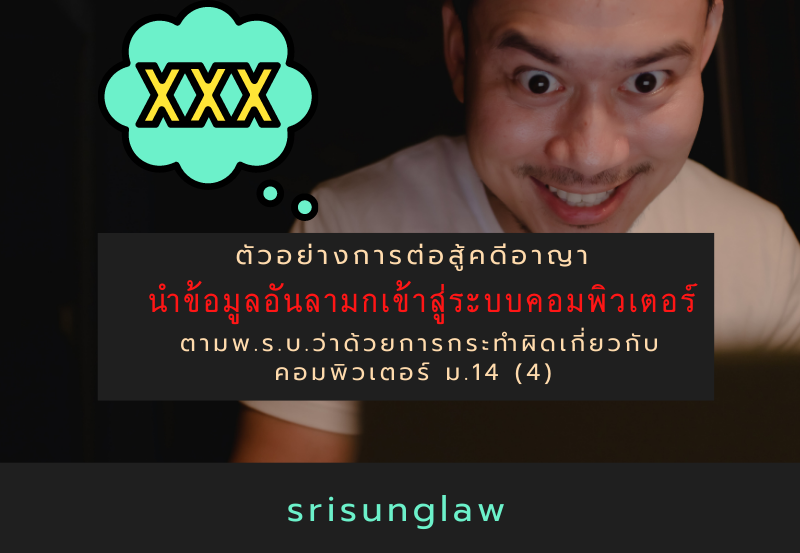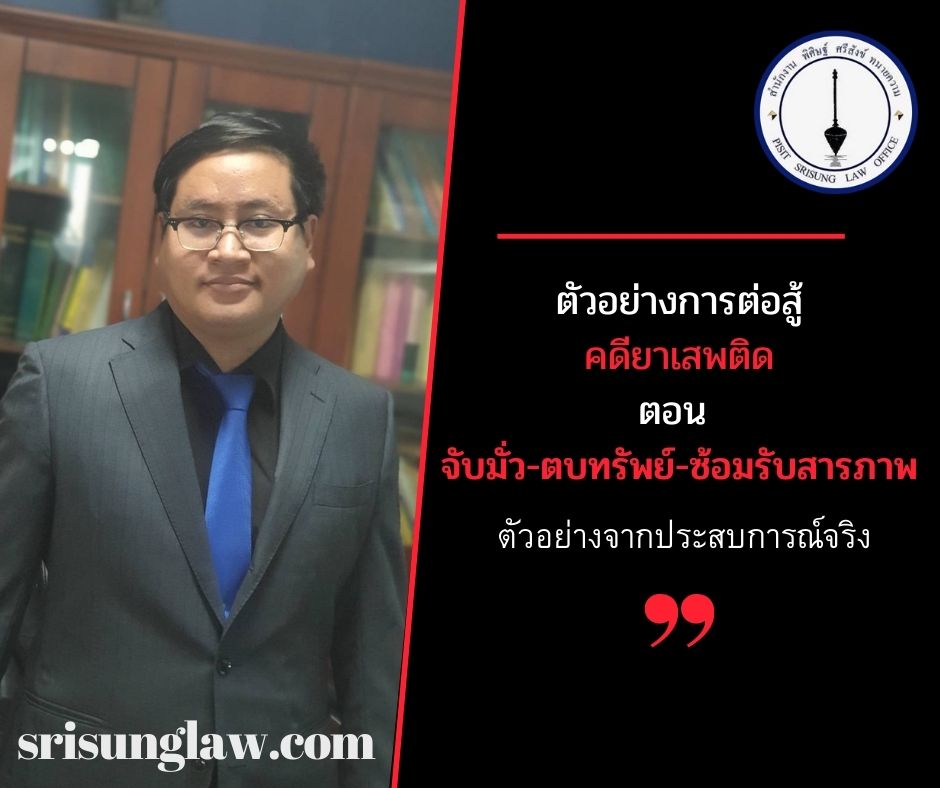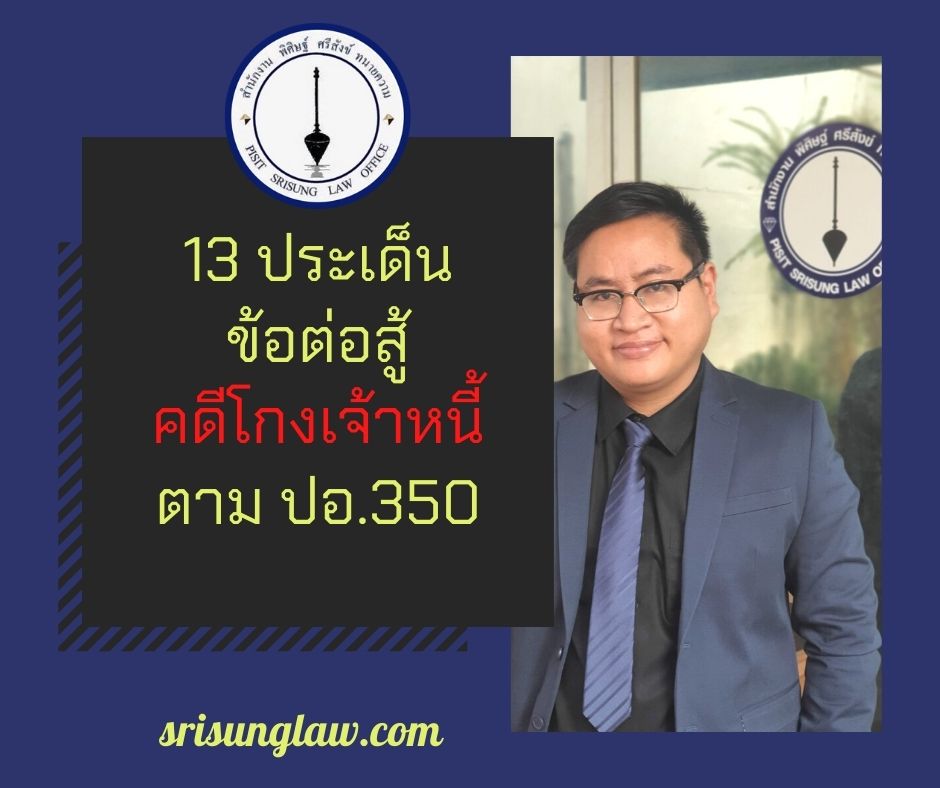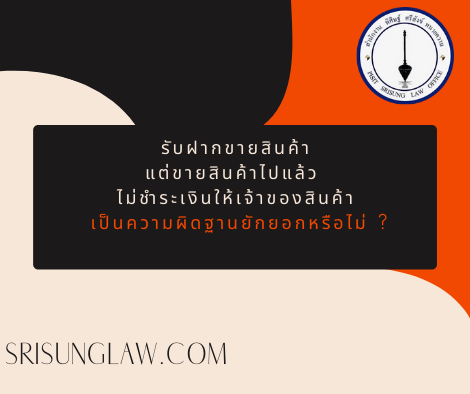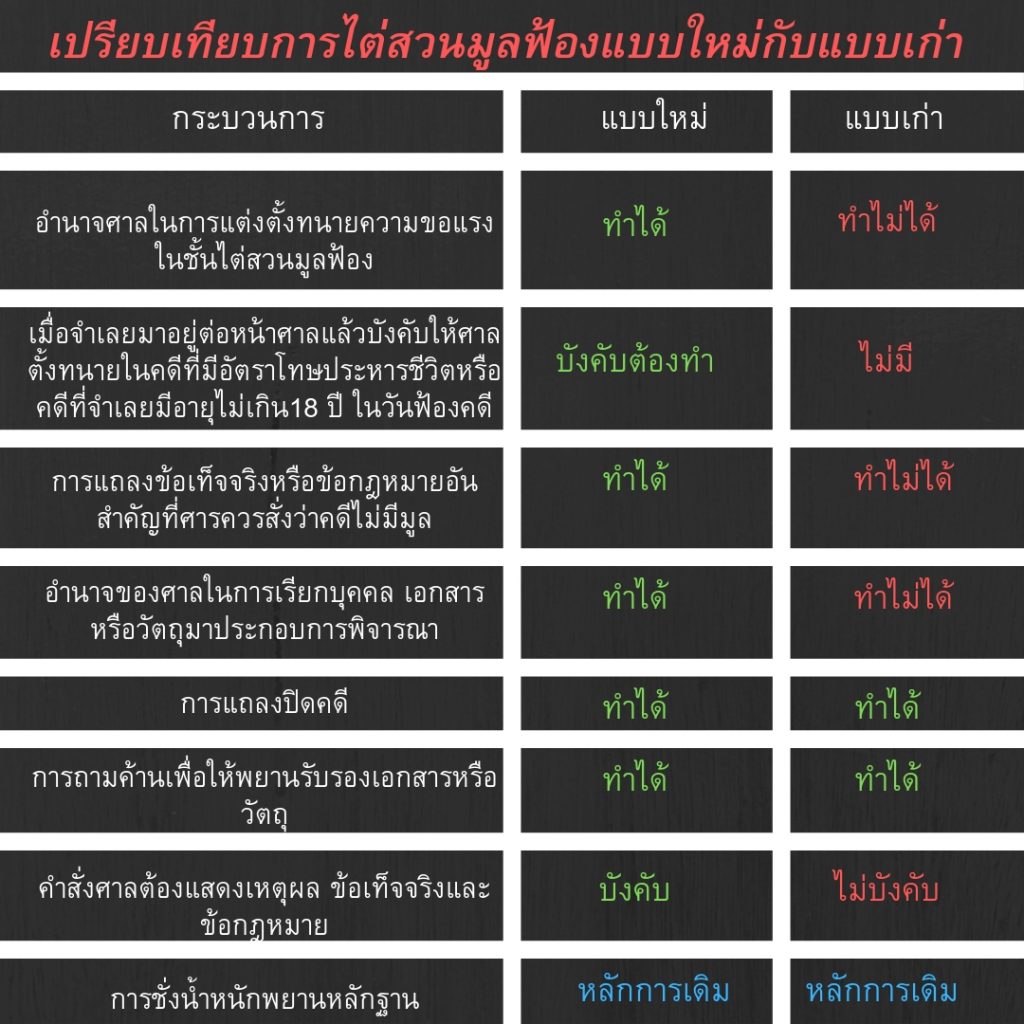Examples of fighting criminal charges of fraud today. It is a case that occurs very often nowadays. That is, the case about the son of Cher suing Thao Cher. It is a criminal case for fraud.
Ordinary. Mr. Wongcher has a responsibility. To collect money from each share Let’s deliver it to the sharer who can be shared according to the scheduled round.
If your child can share the braid, Then Mr. Wong Cher refused to hand over the money to the child of Cher. Share users must file a civil or criminal case.
Because the failure of the sharer to pay money to the sharer may be both a criminal offense. Or is it a civil matter which must be looked at as a whole?
In the case of a criminal case
If you share There was no intention of opening a sharing circle from the beginning. Intentionally deceive money from sharers and then use the money in the wrong way. Or bring the ghost’s hand to accept the money. without really opening up the sharing circle This may be an offense of fraud.
With examples of Supreme Court judgments. For example,
Supreme Court Judgment No. 2510/2525
The defendant, the leader of the sharing group, deceived the co-plaintiff that F. his band members would sell the shares. In fact, F. did not sell the shares to anyone. As a result, the plaintiff jointly purchased the shares and the defendant received the money from the co-plaintiff as follows: The defendant committed an offense under the Criminal Code, Section 341.
Supreme Court Judgment No. 856/2510
The defendant used lies to deceive the plaintiff that he was the leader of a lottery sharing group and that there was sharing. The plaintiff was misled and therefore agreed to buy and share it. By paying the defendant 7,000 baht, in fact, the defendant did not open a lottery sharing circle as the defendant claimed, as follows: The defendant is guilty of embezzlement according to Section 341 of the Criminal Code.
Supreme Court Judgment No. 4139/2004
The plaintiff describes the lawsuit as follows: The defendant, a natural person, was the ring leader who organized the sharing game. The total number of members of all 5 sharing bands is 35 people, which completes the elements of the offense. Because of the elements of the offense according to Section 6 (1) (2), a natural person is prohibited from being the leader of a sharing circle or arranging for a sharing circle where the total number of sharing circles is more than 3 or the total number of members in all circles is more than 30 people. The list of 28 victims is the list of members of the sharing circles who were defrauded by the defendant in all 5 sharing circles, not the total number of members of all 5 sharing circles. Therefore, the plaintiff’s complaint completes the elements of an offense according to Section 6 (1). (2) then
The plaintiff describes the defendant’s actions as the leader of a sharing band, organizing 5 sharing bands from March 25, 1998 to May 9. 1999, with the total number of sharing band members totaling more than 30 people, which is an offense according to of the Sharing Act of 1991, Section 6 (1) (2), and later the defendant also committed the crime of defrauding all 28 victims by deceiving that other members of the sharing circle were bidding on common fund funds. By giving a higher interest rate than each victim who participated in the auction. Therefore, the central fund must be collected and given to that member. And in some periods, the defendant falsely claimed the names of some members of the sharing circle to bid on the common fund by offering a higher interest rate than the victims who participated in the auction. Until the defendant obtained the funds from the pot himself. The defendant’s actions in this section are separate from being the ring leader or organizer of the sharing ring, which is an offense under Shared Playing Act It is a scam and falsely claims the rights of other members of the sharing group. They are different offenses with different intentions. Therefore, the defendant’s actions were several different offenses, not a single act, violating many provisions of the law. When the plaintiff has described all the elements of each offense, The plaintiff’s claims do not conflict.
The defendant also committed the offense of defrauding all 28 victims by deceiving them into having other sharing circle members bid on the pool of funds by giving higher interest returns than each victim participating in the auction. Therefore, the central fund must be collected and given to that member. And in some periods, the defendant falsely claimed the names of some members of the sharing circle to bid on the common fund by offering a higher interest rate than the victims who participated in the auction. Until the defendant obtained the funds from the pot himself. The defendant’s actions in this section are separate from being the ring leader or organizer of the sharing ring, which is an offense under Shared Playing Act It is a scam and falsely claims the rights of other members of the sharing group. They are different offenses with different intentions. Therefore, the defendant’s actions were several different offenses, not a single act, violating many provisions of the law. When the plaintiff has described all the elements of each offense, The plaintiff’s claims do not conflict.
Supreme Court judgment no. 5019/2020
The defendant did not actually set up a sharing circle. It is only claiming that the arrangement of the sharing game is a deception in order to receive the share installment money from the nine victims or others only. Therefore, the defendant did not commit the crime. Shared Play Act 1991, Section 6
In the case of a civil case
But if Mr. Sharing Band had the intention of opening a sharing band legally from the beginning. But there’s a problem. For example, someone else’s sharer’s child is distorted and refuses to pay. Therefore unable to earn money to pay to the share children that Pia shared. This is only a civil matter.
There are examples of Supreme Court judgments such as
Supreme Court Judgment No. 2926/2001
Each share payment that the eleven victims and the co-plaintiff sent to the defendant. When anyone bids, they can share. It will fall on that person. The ownership of the money already sent no longer belongs to the eleven victims and the co-plaintiffs, and if the eleven victims and the co-plaintiffs are unable to bid on the share because the share has been abandoned. Whatever the reason The defendant, as the share dealer, must be held liable. This is a civil offense and the defendant is not guilty of embezzlement.
Supreme Court Judgment No. 2444/1989
The offense of fraud is an offense that has consequences separate from the action. That is, it must be the acquisition of property by deception, as follows: The defendant obtained property from the victim by playing share. In which 90 hands were played, there was an auction to share and collect money from the players to bidders for 57 hands. Later, the defendant, the band leader, defaulted. Do not collect money from share players and do not continue with share auctions as per your duties. Therefore, it is a breach of the sharing contract, which is a civil obligation. The defendant’s actions do not amount to fraud.
Supreme Court Judgment No. 3112/2523
The prosecutor is the plaintiff, suing to punish the defendant for the crime of fraud and to return the money the defendant obtained through fraud to the victim. When the facts prove that it is not fraud. But it is about the victim and the defendant voluntarily playing and sharing with each other. Which is a matter of pure civil liability, not a civil case related to a criminal case, as follows: The money that the injured party paid for the share to the defendant. Therefore, it is not property that the injured person lost due to the wrongdoing. The prosecutor has no right to demand such money on behalf of the victim. According to the Criminal Procedure Code, Section 43
However, in litigation Many sharers want their money back quickly or definitely. It is popular to sue as a criminal case. Because there are stronger enforcement measures.
But filing a criminal case where the evidence is insufficient It will cause the court to dismiss the case as appears in this case. Then it will cause the sharing party to have to waste time or may have to spend money filing a separate civil lawsuit. and may have to be sued as well.
Today I have taken an example of a case like this as a lesson and an example for fighting the case in the future.
This case is a simple case of facts, not complicated. The story is that Thao Cher was sued by Share’s children for fraud. Because when it was due to pay the child, Thao Cher did not have money to pay.
And the reason for not having money to pay Due to being misled by other sharers who did not pay the same amount. Thao Cher has tried to mediate and ask for installment payments with Luk Cher. But the sharer doesn’t agree. and came to sue as a fraud case.
I consider this case to be a not too complicated case. Therefore, a young lawyer was assigned to the office. Asia lawyer Bunyawee Noisukkha represented and cross-examined witnesses at the preliminary hearing. along with making a statement explaining the facts and legal issues that the court should order that the case has no basis Submit to the court before the deadline
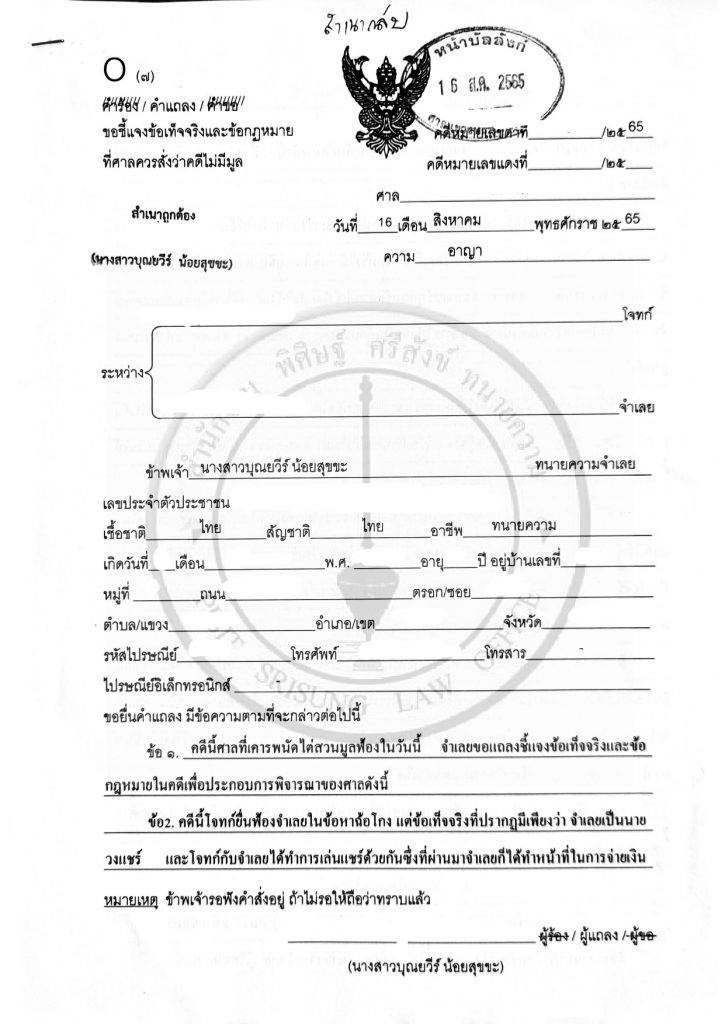
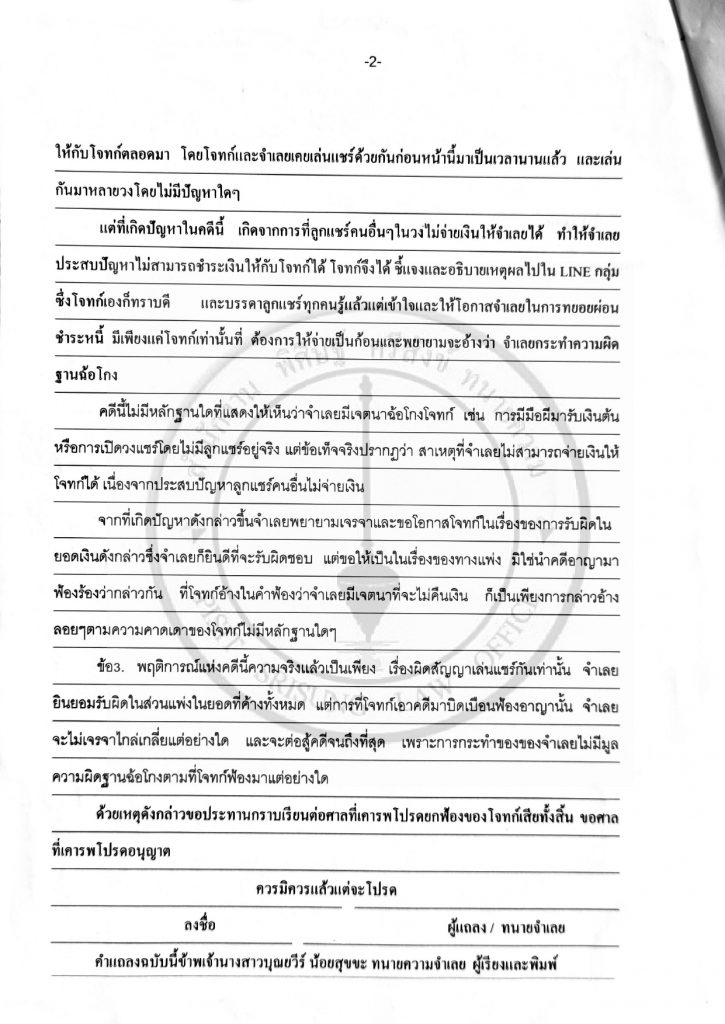
In the end, in this case, the court ruled to dismiss the case. Because it is a civil offense only
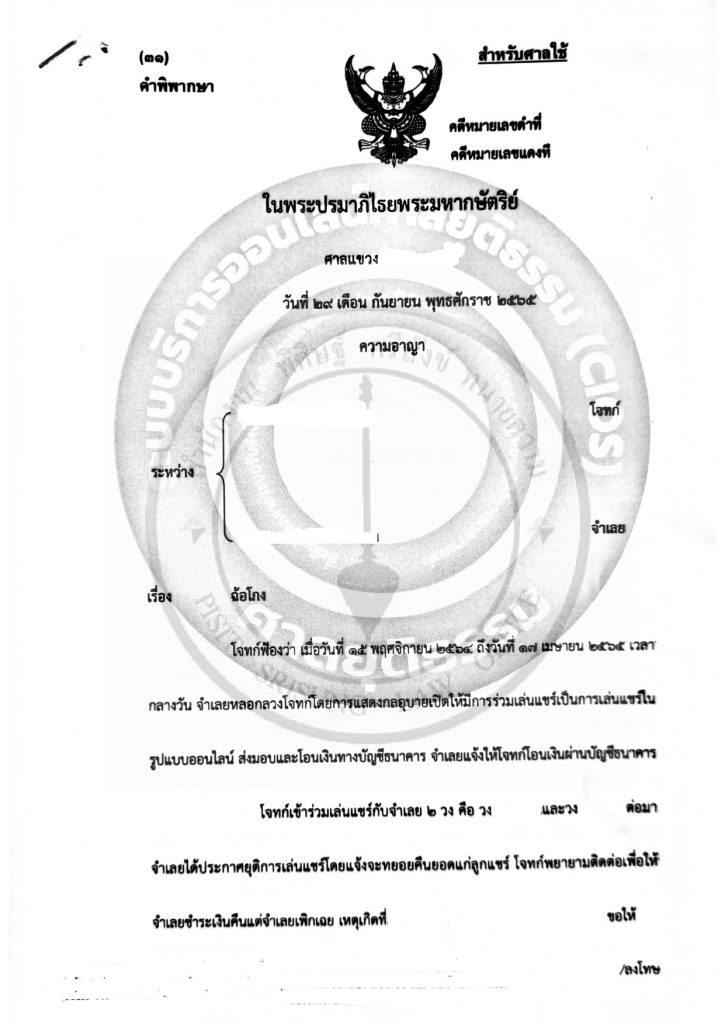
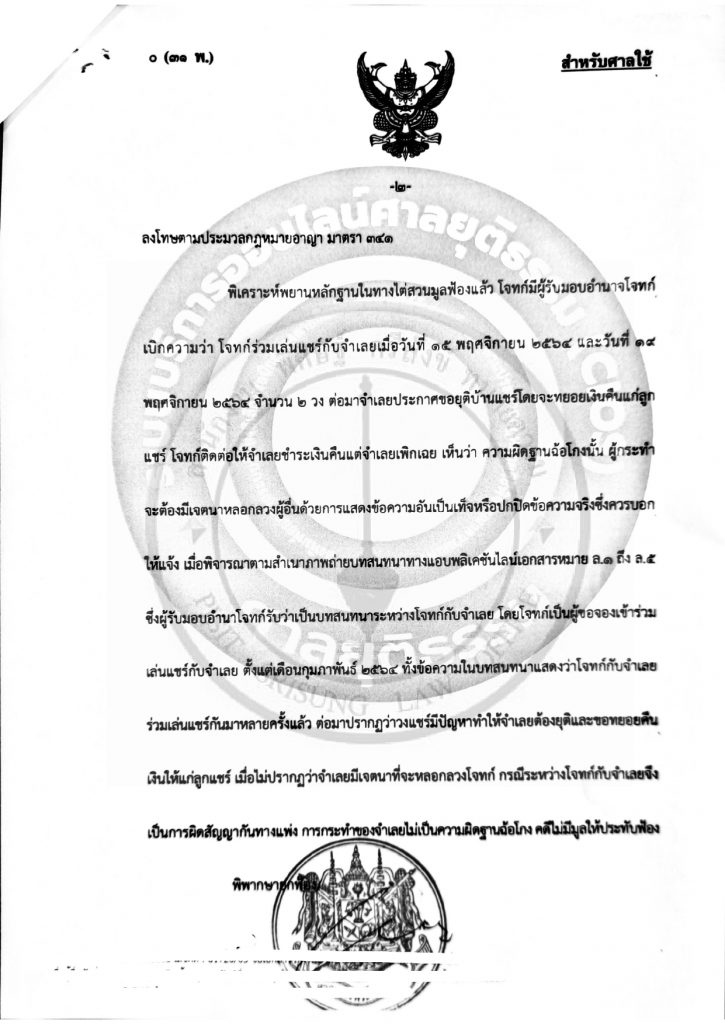
Today I have brought an example of fighting such a case to publish and hope it will be useful to all friends and interested people.

 51/29-51-30 Village No. 4, Ban Suan Subdistrict, Mueang District, Chonburi Province
51/29-51-30 Village No. 4, Ban Suan Subdistrict, Mueang District, Chonburi Province



